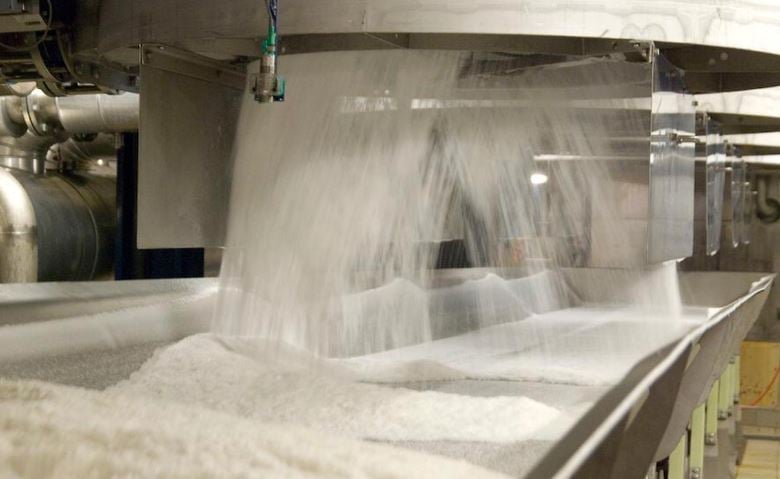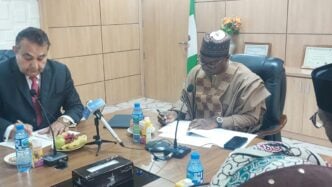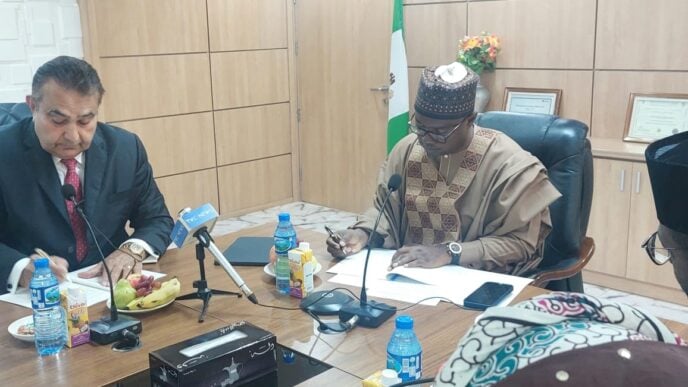Sugar factory | File photo
Kamar Bakrin, executive secretary of the National Sugar Development Council (NSDC), says the sugar master plan requires $4.5 billion in investments.
Bakrin spoke on Thursday during a public hearing on the bill to amend the National Sugar Development Council Act 2024.
The hearing was organised by the house of representatives committee on industry.
He said the Nigerian sugar master plan aims, among other goals, to create 100,000 high-quality jobs, promote the development of rural infrastructure, and save at least $1 billion annually in foreign exchange.
Advertisement
“To realise this, we require $4.5 billion in investments, which the National Sugar Development Council is assiduously pursuing,” he said.
“We understand that investor confidence is paramount. The feedback we have received from investors so far emphasises the need for assurance, a disciplined rule-based approach to investment that ensures transparency and accountability and assures investors that their investments would be safe and would realise returns.”
Bakrin expressed reservation over a recent directive mandating that 50 percent of the sugar levy be remitted to the consolidated revenue fund (CRF), saying it could undermine the sector.
Advertisement
“The sugar levy was specifically introduced to fund the sector’s development, unlike import duties. Redirecting those funds could derail the country’s industrial ambitions,” he added.
Industry stakeholders also spoke at the public hearing, pledging support for the sector’s development.
Mojisola Adeyeye, director-general of the National Agency for Food and Drug Administration and Control (NAFDAC), through her representative, Iba Edward, asked the national assembly to “clearly delineate” the roles of NSDC to avoid conflict.
“NAFDAC remains the regulatory authority for all food imports, including sugar, to ensure consumer safety and quality standards,” Adeyeye said.
Advertisement
Aliyu Hong, a representative of BUA Group, said the company has made significant investments in the sugar sector.
“We have developed a nearly 50,000-hectare sugar plantation, with 20,000 hectares already under cultivation, and we are acquiring another 50,000 hectares. While we are not where we want to be yet, we are making progress,” Hong said.
Onome Okurah, head of government and community relations at Flour Mills of Nigeria, said the firm operates over 6,000 hectares and currently runs sugar production for three to four months annually.
“We believe that with sustained collaboration, we will see meaningful progress in the next decade,” Okurah said.
Advertisement
John Eno, minister of state for industry, said sugar plays a critical role in rural development, job creation, and national value generation.
“The national sugar master plan (NSMP) is vital to our industrialisation drive. However, its success depends on the collective attitude and accountability of both public and private sector actors,” Eno said.
Advertisement
“This amendment is intended to strengthen the law, correct past lapses, and ensure we achieve real import substitution and sustainable local capacity.”
Enitan Badru, chairman of the house committee on industry, said the bill’s amendment would “shape regulatory authorities and ensure they are strategically positioned to effectively relate with the operators in the sector”.
Advertisement
Badru added that if the bill is passed into law, the sector’s competitiveness would be enhanced, boosting Nigeria’s economy.
Advertisement









